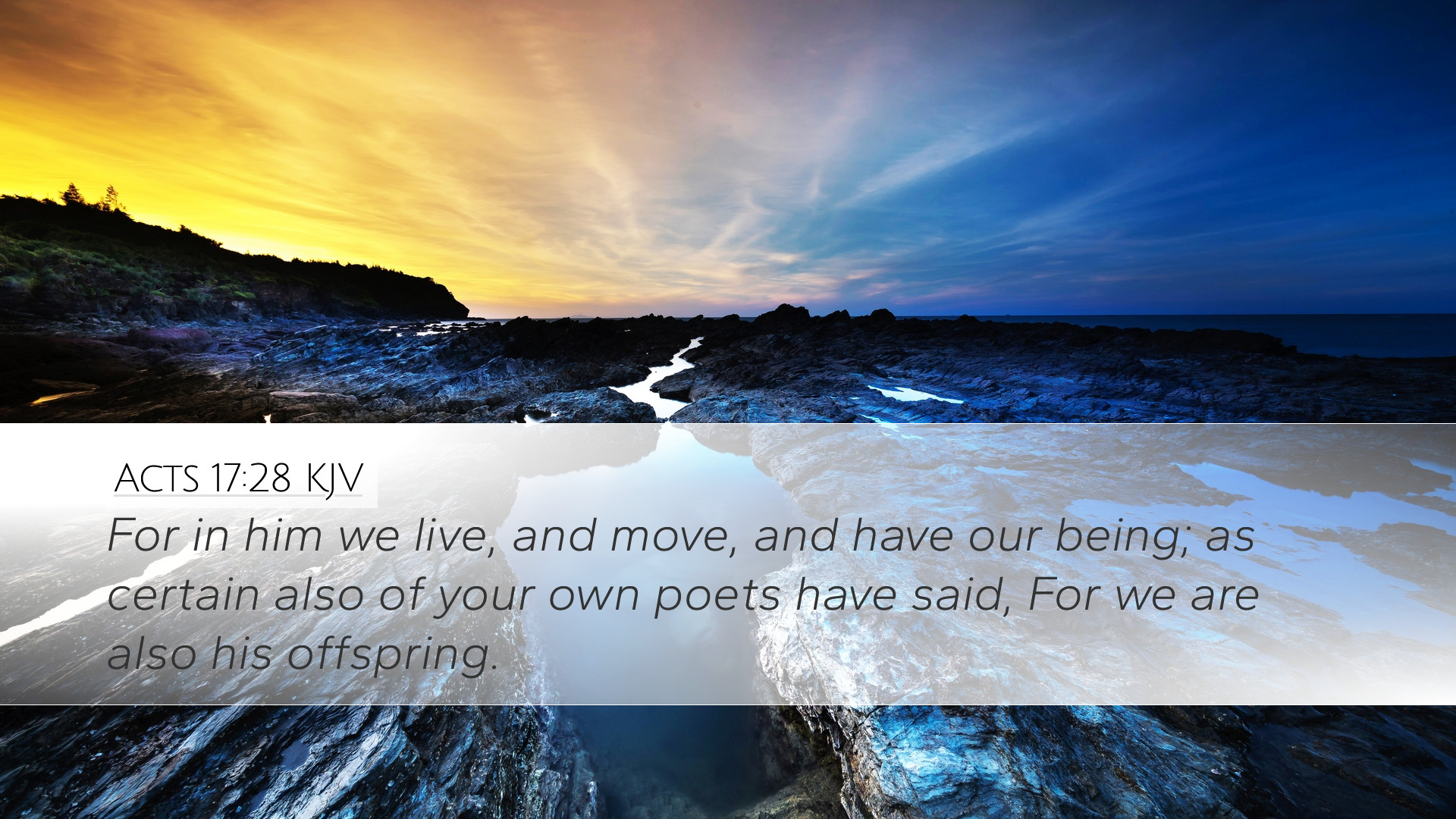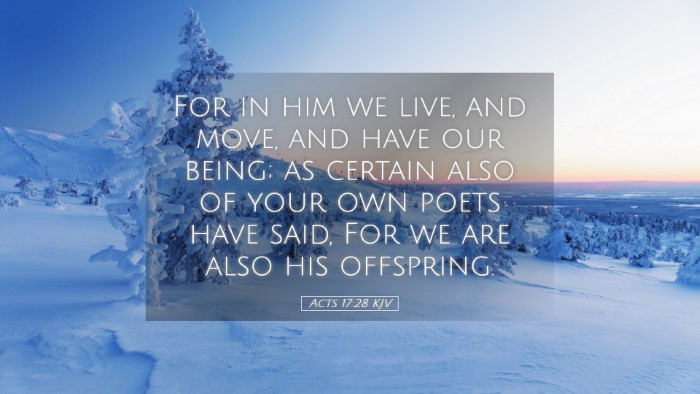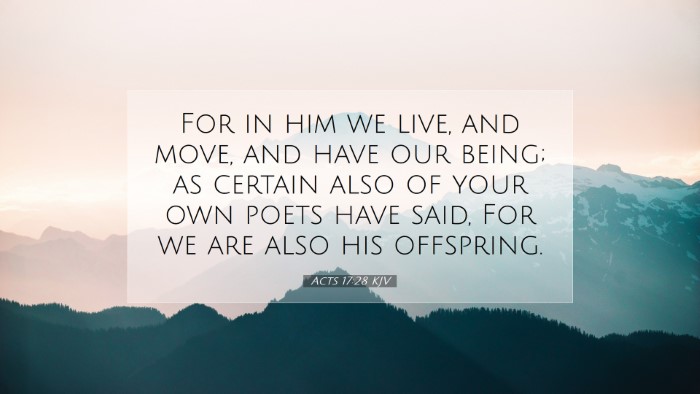Commentary on Acts 17:28
Acts 17:28 states: "For in him we live, and move, and have our being." This profound declaration comes from the Apostle Paul as he addresses the philosophers in Athens, revealing deep theological truths about the nature of God and our relationship to Him. In this commentary, we will explore various insights from renowned biblical scholars and their reflections on this verse.
Contextual Background
The Apostle Paul finds himself in Athens, a city steeped in philosophy and idol worship. He is distressed by the multitude of idols he sees, which spurs him to engage with the thinkers of the time. His speech at the Areopagus is a pinnacle moment, where he articulates a vision of God that transcends the Greek pantheon and connects to the universal human experience.
The Nature of God
Paul’s assertion that “in Him we live and move and have our being” encapsulates the essence of God as the source of all life and existence.
- Matthew Henry emphasizes that God's presence is not confined to the temples made by human hands (Acts 17:24), suggesting that His essence permeates all creation and sustains it.
- Albert Barnes notes that this indicates the continuous dependence of humanity on God for physical, spiritual, and existential sustenance.
- Adam Clarke identifies this statement as an affirmation of divine omnipresence and the necessity of God at the core of human life.
In Him We Live
This phrase emphasizes the idea that life itself originates from God. The very breath we take is a gift from the Creator.
- Matthew Henry remarks that life, both physical and spiritual, is dependent on God. He sustains our existence and our ability to thrive.
- Albert Barnes expounds that this living is not merely biological but encompasses the fullness of life, including emotional and spiritual dimensions.
- Adam Clarke points out that true vitality is found in a relationship with Christ, the source of eternal life.
And Move
The idea of movement signifies not only physical locomotion but also the purpose and direction in our lives.
- Matthew Henry reflects that our actions and endeavors are ordered by God, reinforcing the belief in His sovereign control over human affairs.
- Albert Barnes comments on how our moral and spiritual movements are directed by God's guidance, emphasizing the importance of Divine leading.
- Adam Clarke interprets "movement" in both a literal and metaphorical sense, implying that without God, we are directionless.
And Have Our Being
This closing phrase encapsulates the philosophical assertion of existence itself—our very being is rooted in God.
- Matthew Henry highlights that God's being is the foundation of all creation, and without Him, nothing exists.
- Albert Barnes points out that this implies both an individual and collective existence that is intrinsically tied to God.
- Adam Clarke stresses the importance of recognizing that our identity and purpose are found entirely within our Creator.
The Implications for Humanity
The theological implications of “in Him we live, and move, and have our being” are profound, impacting our understanding of identity and purpose.
- Matthew Henry encourages believers to recognize their dependence on God for all aspects of life, leading to a sense of humility and gratitude.
- Albert Barnes insists that understanding our relation to God fosters a desire for deeper communion with Him and shapes our moral framework.
- Adam Clarke concludes that a life grounded in this truth propels believers to live purposefully, reflecting the character of Christ in all pursuits.
The Universality of the Message
Paul’s message resonates with both Jews and Gentiles, presenting a God who is not distant but actively involved in His creation.
- Matthew Henry notes the inclusivity of the message, acknowledging that God’s reach extends to all people, inviting them into relationship.
- Albert Barnes states that a recognition of this truth can bring about transformative change in individuals and cultures alike.
- Adam Clarke emphasizes that the universality of the Creator helps break down barriers and fosters a common ground for dialogue about faith.
Conclusion
Acts 17:28 serves as a profound reminder of the centrality of God in the life of every individual. As Paul’s declaration resonates throughout the ages, it challenges believers, pastors, and scholars alike to reflect on their existence, purpose, and movement within the divine framework.
Through the insights garnered from historical commentaries, we understand that living in awareness of our dependence on God allows us to fulfill our intended design, to live authentically in His presence, and to engage meaningfully in our communities. Thus, in Him, we indeed find life, movement, and existence.


